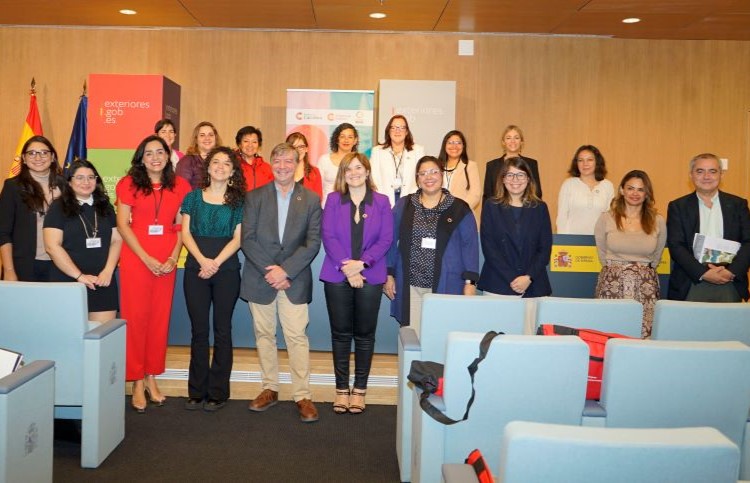The Diplomat
The Ministry of Foreign Affairs hosted yesterday the inauguration of the VIII edition of the Ibero-American Women Leaders program, organized by the Fundación Carolina with the support of the Stste Secretary for International Cooperation and whose purpose is to analyze the gender perspective in the post-pandemic recovery agenda.
Under the title Visibilizar, debatir, construir futuros de igualdad (Making visible, debating, building futures of equality), the aim of this initiative is to “contribute to strengthening ties between women and institutions in Latin America and Spain, as well as to promote an Ibero-American network of relevant women in fields as diverse as politics, academia, culture, social and trade union movements and international cooperation”, according to the organizers in a press release.
Thirteen women from different Latin American countries who have stood out in their respective fields of activity for their work in favor of gender equality will participate in this edition. During five days, the participants will take part in an agenda of meetings, academic sessions and round tables in Madrid and Valencia, where they will be able to share experiences and reflections with personalities from political, academic, economic and social life. Yesterday, they attended a lecture by journalist Ana Requena, held a meeting with the former minister and former director of the Carolina Foundation, Rosa Conde, and took a guided tour of the Prado Museum.
The content of the agenda develops the five major issues that should be part of a post-pandemic recovery agenda with a gender perspective: policies and strategies to combat physical and sexual violence, care as the axis of the new social pact, economic autonomy and labor insertion of women after the pandemic, actions to identify and resist threats to rights and ways to imagine, design and define desirable and possible futures.
During the opening ceremony, held yesterday at the Ministry, the director of the Fundación Carolina, José Antonio Sanahuja, stressed the need to ensure gender justice in the three transitions that Latin America, Spain and the EU have to face: the socioeconomic transition in favor of greater economic, social and territorial cohesion, the productive and digital transition and the ecological transition, “because without gender equality objectives, they will not be fair transitions”.
The State Secretary for International Cooperation, Pilar Cancela, stated that “reactivating this meeting space between women and institutions from Latin America and Spain leads to sharing knowledge, which is an essential way to cooperate in order to move forward on different paths”. “After ten years of pause, I am sure that this program will return with even more strength to address issues as present and urgent as those mentioned above for a post-pandemic recovery,” she added.







